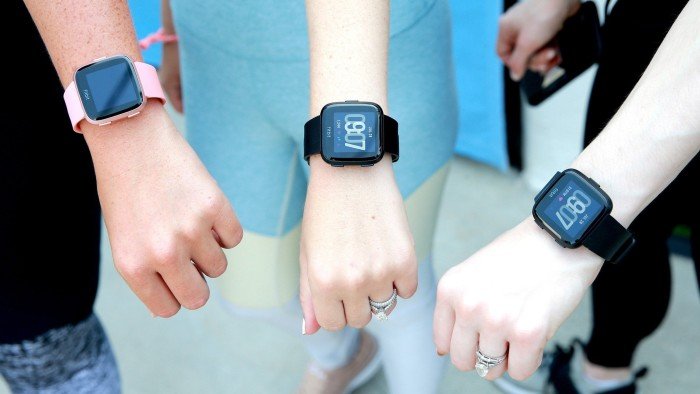Unlock the Editor’s Digest for free
Roula Khalaf, Editor of the FT, selects her favourite stories in this weekly newsletter.
US health tsar Robert F Kennedy Jr wants all Americans to be sporting medical “wearables” in the next four years, banking on such devices to make the country healthy again. The outspoken vaccine sceptic’s hopes have already got investors’ pulses racing. Shares in glucose-monitoring company Dexcom rose almost 10 per cent on Wednesday.
It’s not just Americans who like keeping tabs on their wellbeing. Japanese toilet maker Toto has been testing users’ urine for diabetes and other conditions for decades. Prissier westerners prefer trackers around their wrists or, in the case of the Ōura ring, fingers. In China, the biggest smartwatch market, according to IDC, homegrown Huawei leads the field, a surprise since a former boss once professed himself pessimistic about the market.
Picking winners can be tricky, especially when politicians are involved in deciding whose technologies work best. The medical market has a tendency to breed cronyism, as the UK discovered during the pandemic. Donald Trump’s administration has been unabashed about backing individual businesses.
Dexcom is one that already moves in the right circles, at least. It has partnered with health-monitoring company Levels, co-founded by Casey Means — Trump’s pick to be US surgeon general and a fan of Kennedy. Moreover, it has already laid the groundwork for potentially useful industry collaborations: Dexcom backed Ōura’s $200mn fundraising at the end of last year.

Snafus, from data breaches to privacy violations, are inevitable. There is a graveyard of medical ventures that have sought to empower users, from blood-testing start-up Theranos to Microsoft’s healthcare data storage HealthVault, which was shuttered in 2019. Others have simply shrunk, such as Fitbit, for which Google paid $2.1bn in 2019, roughly half the value at which it went public four years previously.
Dexcom itself is increasing revenue at a decent clip; consensus forecasts are for a 20 per cent increase in patients this year and 15 per cent next year. But demand is tricky to forecast. The shares, and performance, have been volatile. It doesn’t help when new rivals regularly spring up with tempting deals — Zoe in the UK, which offers in-home test kits and personalised nutrition plans, is an example.
As for the obvious risk of becoming a fad, tech companies already embedded in people’s lives — and recipients of much of their data — have the best chance, as Apple and Huawei show. But even that is not a given. Google, without hardware in its DNA, has shed monthly active Fitbit users in recent years, according to the Business of Apps.
The eternal challenge for such ideas is that the path of least resistance is often seen as treatment rather than prevention. For weight loss, for example, bariatric surgery has ceded ground to GLP-1 injections. And besides, monitoring is only valuable if the user acts on what they learn. Kennedy, like so many wearable device buyers, may be starting with good intentions. If only that were enough.
louise.lucas@ft.com
